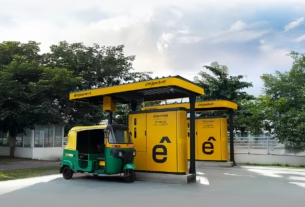In Short : Karnataka is opposing the central government’s ambitious PM Surya Ghar: Muft Bijli Yojana, which aims to speed up the adoption of rooftop solar energy. The allure of purchasing solar panels has diminished due to the state’s own free electricity program for households. Even as India works to meet its goals for renewable energy and sustainable development, experts caution that this divergence may impede the expansion of decentralized solar systems.
Why Karnataka Doesn’t Care About PM Surya Ghar
In order to lessen dependency on non-renewable resources like coal, the PM Surya Ghar program was introduced to encourage households to install rooftop solar panels and produce their own solar energy. However, because Karnataka already provides 200 units of free electricity under its Gruha Jyothi scheme, the program has not taken off as planned there. Even though the long-term savings and environmental benefits of solar light and rooftop panels are still significant, the financial case for them appears less strong for households that already receive free electricity.
Implications for Solar Adoption Slower Rooftop Growth: Karnataka has not adopted rooftop solar systems as quickly as states that do not offer free electricity.
Investor Concerns: According to analysts, the share price of the solar industry as a whole may be impacted if similar state-level policies proliferate because demand projections may need to be revised.
Impact on Manufacturing: To maintain growth, India’s domestic PV manufacturing industry, which recently surpassed 100 GW of solar panel production capacity, needs strong demand. The share price trends of SW Solar and other related markets may be impacted by a slowdown.
Sustainable Development versus Policy
Despite their popularity, experts contend that welfare policies like free power could inadvertently slow the transition to renewable resources. Solar energy is a plentiful and clean alternative to non-renewable resources like coal and oil. Millions of prosumers, or homes that produce and use their own solar energy, could have been created by promoting rooftop adoption through the PM Surya Ghar scheme. Karnataka’s policy may provide households with short-term respite by discouraging solar panel investments, but it will pose long-term challenges to sustainable development and energy independence.
State and Central Objectives in Balance
As part of its energy transition plan, the central government wants rooftop solar systems to be widely adopted. However, the free electricity policy in Karnataka is conveying a different message: households don’t have to worry about their energy costs, even if that means continuing to rely on grid power that comes in part from non-renewable resources. This discrepancy emphasizes how urgently policy coordination is required. According to experts, Karnataka could still incorporate the PM Surya Ghar program by providing hybrid incentives, like providing free electricity to homes that install solar panels.
The More Comprehensive View
India has pledged to achieve 500 GW of renewable capacity by 2030 and net-zero emissions by 2070. Along with larger initiatives like solar parks and green hydrogen, rooftop solar is an essential component of this journey. India runs the risk of falling short of its decentralized energy targets if state policies, such as those in Karnataka, discourage household adoption.
Furthermore, it is assumed that households will contribute power back to the grid when developing solar system drawings and designs for decentralized grids. Long-term grid resilience may suffer from lower adoption rates that impede innovation in these fields.
The Bottom Line
The complicated trade-off between short-term welfare gains and long-term sustainable development is demonstrated by Karnataka’s choice to give free power precedence over rooftop solar incentives. Although free electricity provides temporary respite, it runs the risk of slowing down solar energy adoption and reducing the pace of India’s renewable energy transition.
Better coordination between state and central policies is crucial if India is to strike a balance between welfare, climate goals, and industrial growth. This includes bolstering the production of solar panels and stabilizing the share prices of the solar industry.




